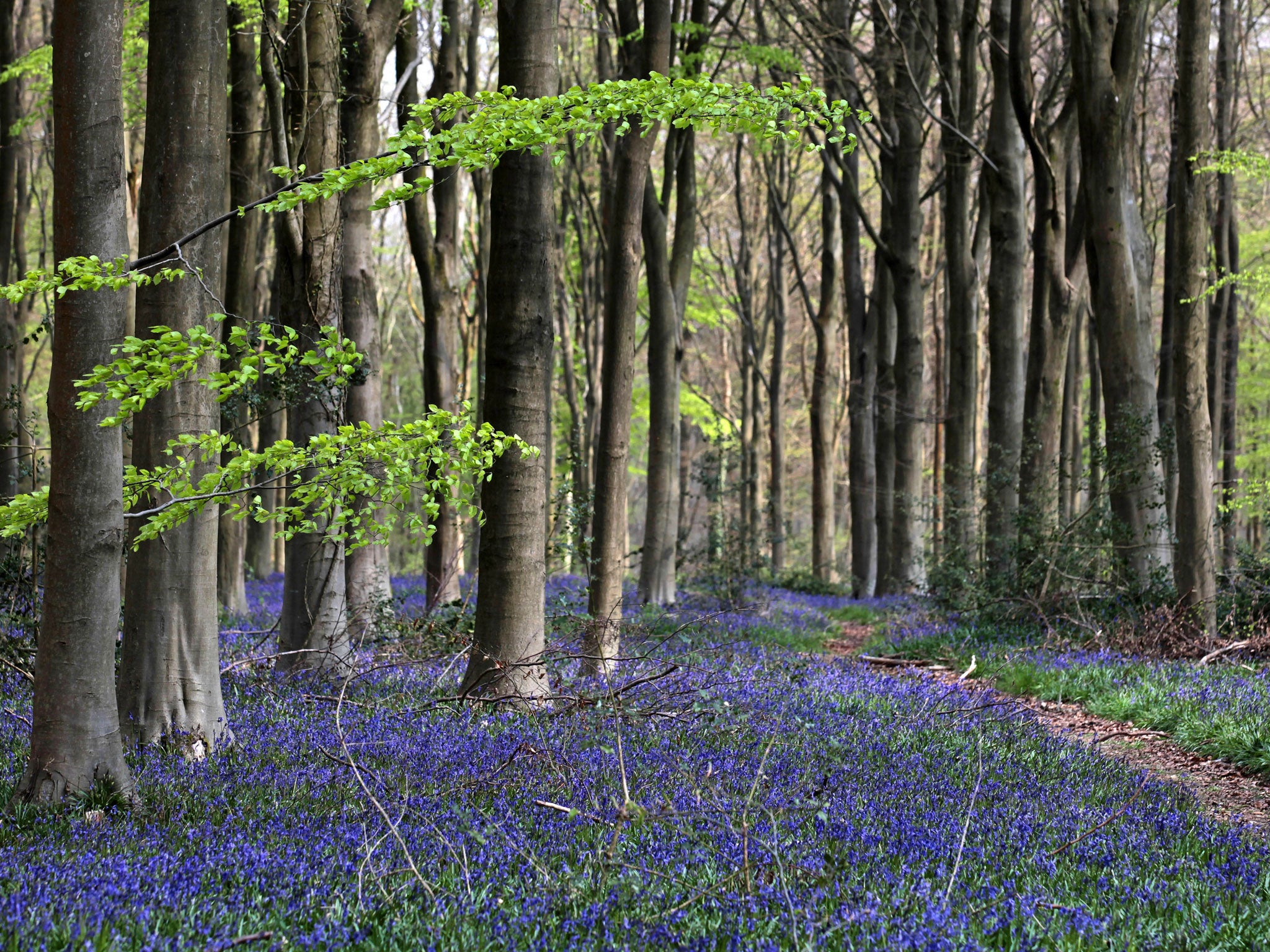The Spanish bluebell is on the loose in Britain's woods
This year's spectacular show of wild English bluebells faces a growing threat from a garden escapee

The desire of gardeners to have one of the great glories of the English countryside growing in their own backyards is threatening the very plant they adore. An insidious process involving garden centres, their customers and insects is doing great damage to that most emblematic of wildflowers, the native bluebell.
Until about a century ago the only bluebells that carpeted our woodlands with a violet-blue mist every May were plants of the native species Hyacinthoides non-scripta. We have half the entire world population in this country, and people from all round the globe come to see the extraordinary displays of these flowers in our woods. But H. non-scripta has a close relative, the Spanish bluebell, Hyacinthoides hispanica, which was introduced to English gardens nearly 300 years ago.
For centuries all went well, until in 1909 came the first ominous sightings in the wild of the Spanish species, and its hybrid with the native plants. The mechanism for it getting "over the garden wall" could be someone throwing bulbs out, but, for the hybrid, it is far more likely that a pollinating bee, or other insect, has transferred the genetics of one species to the other. As so often is the case, the hybrid has proved more vigorous than either of its parents; and so, over the intervening decades, more and more hybrids have been seen in the wild. A survey by the wildflower charity Plantlife found that, already, one in six broadleaved woodland sites contains either the Spanish species or the hybrid.
Experts at the Forestry Commission fear the spread of the interlopers is getting worse, and predict that the native bluebell may be overtaken by hybrids in the future. Hugh Angus, a dendrologist and member of the volunteer wildflower group at the Forestry Commission's Westonbirt Arboretum, said: "Once you have a population of nothing but hybrids you have lost the original genetic material. If the hybrid is then affected by disease and there is none of the original species left, the threat is that the whole bluebell population could be in danger." He added: "There is no doubt in my mind that our generation and the next may well be the last to see native bluebell woods in all their glory."
What is making matters worse is that many garden centres sell plants labelled "Bluebell" which are the Spanish species, or the hybrid. Thus do the chances increase of hybrid bluebells proliferating in the wild. Mr Angus says: "I fear there is little we can do to stop this; at best we can merely slow it down. We certainly need to think more carefully about what we plant in our gardens."
Eliminating hybrids from the wild, even with unlimited resources, would be an impossible task, for spotting them is not always an easy task. The two main species are quite distinct – H. non-scripta is scented, its petals are a deeper blue, its flowers and leaves are more delicate, and the flower spike grows on one side of the stem only. But the fusions of them are sometimes so subtle that a DNA test is required to sort out the plant's genetics.
The one piece of good bluebell news this weekend concerns our weather. Unlike some recent years, when a warm March or April brought the flowers out early, this year's dismal early spring and prolonged cold has meant that 2013's bluebells will be two to three weeks later than usual. This, with a more concentrated flowering period, could mean sudden and spectacular shows.
For where to see them, visit the websites of the Forestry Commission, Woodland Trust, Wildlife Trusts, and National Trust.
Enjoy our native bluebells while you can.
Join our commenting forum
Join thought-provoking conversations, follow other Independent readers and see their replies
Comments
Bookmark popover
Removed from bookmarks